Thierry Uwiringiyimana was about to become a first-time father and he needed money to support his family. Faced with limited options to earn a living, he crossed the border from Rwanda into Uganda in August 2024 to buy his first supply of Kanyanga, a potent illicit gin banned back home.
Made mostly from fermented bananas, sorghum, sugarcane, and other unidentified ingredients, Kanyanga is classified as “a simple narcotic drug” under Rwandan law. It is high in alcohol with a strong, fiery taste that burns the throat.
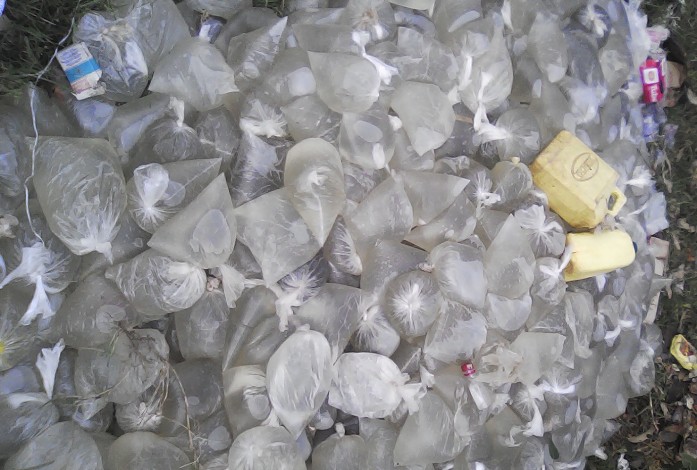
Ugandans make a particularly strong Kanyanga that is popular among young Rwandans and people living close to the border. The drink is part of Uganda’s tradition of Waragi – locally distilled drinks – and is deeply embedded in the local culture.
Leaving his home in Gicumbi District, Uwiringiyimana (33) eventually arrived in Rwene, an informal hub known for its Kanyanga distilleries that attract both local and Rwandan buyers.
It was there that Uwiringiyimana first met Bejahe, a well-known brewer and distributor of Kanyanga in the area. He bought a 27-liter jerrican of Kanyanga for Rwf35,000 (US $25), which he later sold in Gicumbi for more than double that at Rwf 80,000 (US $55)
Within a short time, Uwiringiyimana became a full-time member of Abarembetsi, an organized gang of smugglers known for trafficking in Kanyanga. They made regular excurions into Uganda, evading security patrols by looking for unauthorized crossings along the border, he said. The gang often relied on a network of informants to monitor border movements.
“There were times when the usual route was heavily guarded,” Uwiringiyimana said in an interview. “We’d divert through Rushaki to Kabuga, or climb through Mugina and descend into Kabungu to reach Mukarange in Gicumbi,” he added.
Soon Uwiringiyimana was making regular deliveries around Eastern Province, earning as much as Rwf 110,000 for every 27 liters he sold. Bejahe became his main supplier.
Uwiringiyimana described a life of clandestine movements to avoid detection. Members of the gang often spent nights in the forest waiting for security patrols to pass before they could cross the border. To conceal the Kanyanga, they used makeshift backpacks known as ‘ingobyi’ made from sacks to resemble regular bags. Each “ingobyi” could carry 27 liters of Kanyanga.
“When the police chased us, the bag would never fall off. We became skilled at blending in,” he said.
Risky Business
Uwiringiyimana recalled several close encounters with Rwandan border patrols, including the death of a fellow smuggler, Rafiki, a young man about to be married.
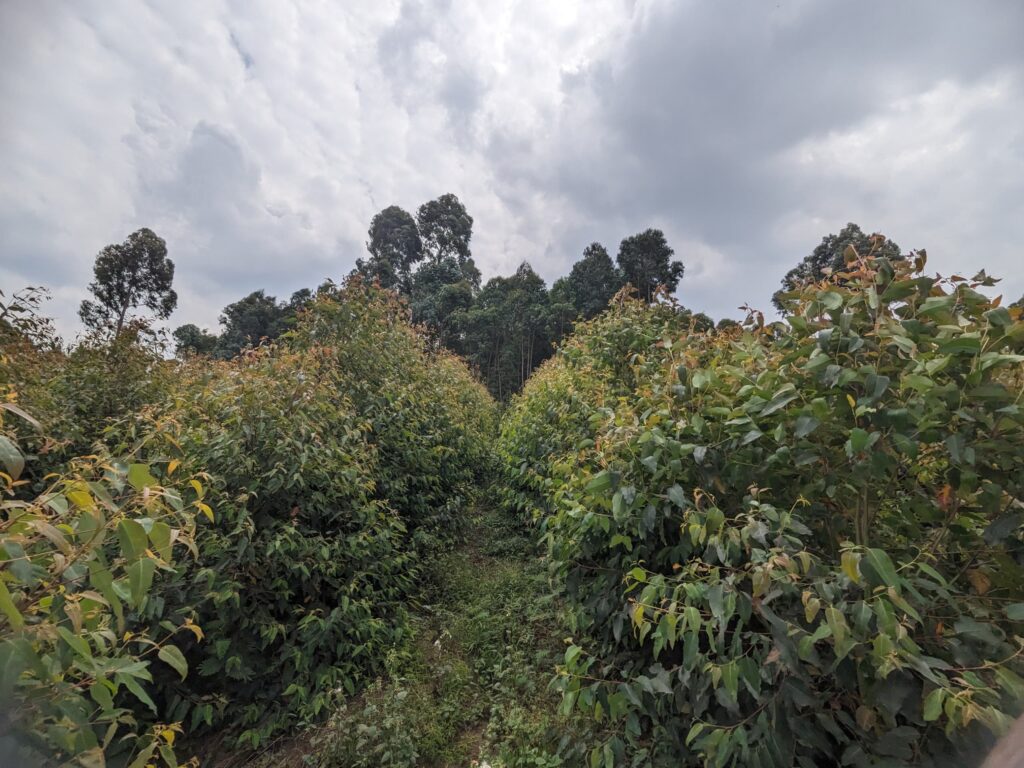
“We were ambushed by security forces. Rafiki resisted arrest and was shot dead,” he said.
Uwiringiyimana eventually gave up smuggling Kanyanga because he feared imprisonment – or worse. He and his wife now earn a living through farming.
Other smugglers tell similar stories of the risks.
Innocent Niyigena, who sold Kanyanga in Rwanda’s Eastern Province, said he also quit smuggling because it became too dangerous.
“The journey was grueling, taking us through forested paths and areas with no proper roads,” he said, describing how the smugglers carried traditional weapons such as spears, machetes, and sharpened sticks that were no match for the guns used by security forced. “One evening, nine of us crossed the border from Uganda. I was in the middle of the group when security forces ambushed us from both sides. Some tried to resist and three were killed.”
Secret Language
In Rwanda, Kanyanga is sold discreetly. Getting caught could mean up to 10 years in prison or a fine of up to Rwf 10 million.
“To avoid detection, people pour Kanyanga into soft drink bottles, especially energy drink containers, so it looks like they’re drinking legal beverages,” one former smuggler told ICK News, requesting anonymity to avoid retaliation. To deceive security agencies and local authorities, buyers and sellers use coded language to refer to Kanyanga, including “medicine,” “stone,” “sweet potato,” “white,” and “kilos”.
It’s difficult to estimate overall figures for Kanyanga trade between Uganda and Rwanda because it enters the country illegally. In 2017 the Rwanda National Police (RNP) said it had seized and destroyed Kanyanga valued at Rwf36 million coming from Gicumbi District alone.
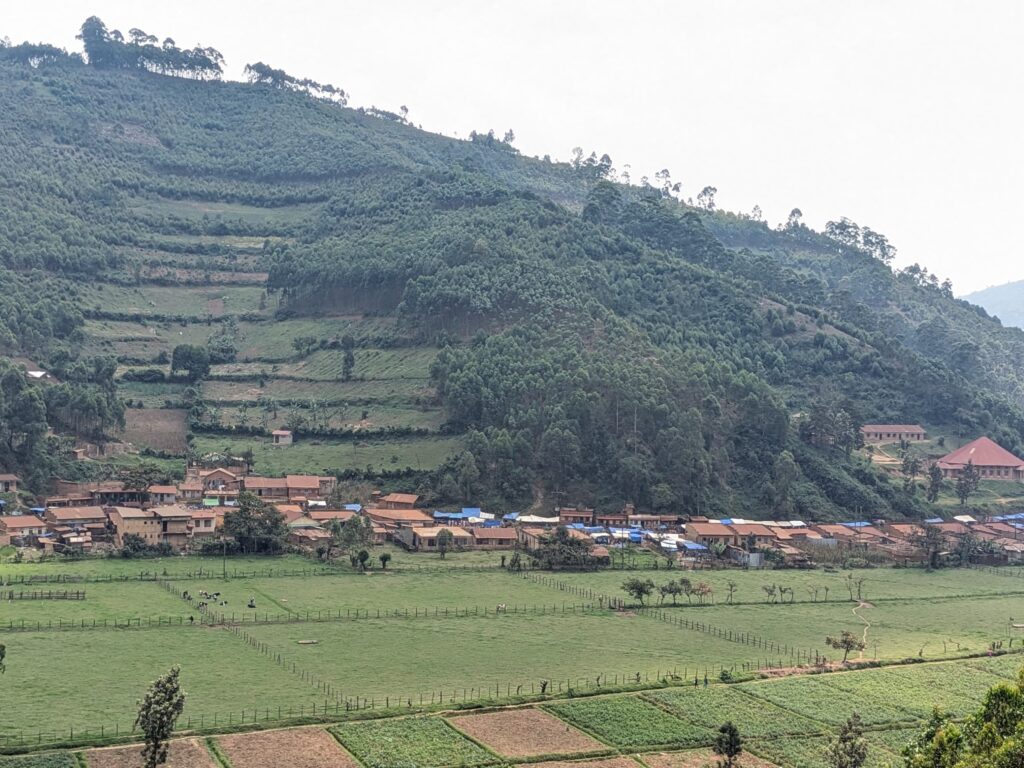
The RNP in Northern Province reported in early 2024 a sharp decline in Kanyanga smuggling, which it attributed to stepped-up border security and community-driven programs that warn about the dangers of Kanyanga.
The government has also created Imboni z’Umutekano (Security Watchers), a community-based task force established in 2021 to help tackle Kanyanga smuggling. Each member of the group received a modest monthly salary of Rwf 40,000 ($32 USD).
Jean de Dieu Bangirana, who leads 168 security watchers in Kaniga Sector of Gicumbi District, said the task force monitors frequently-used smuggling routes and try to intercept smugglers with the help of information gathered from communities.
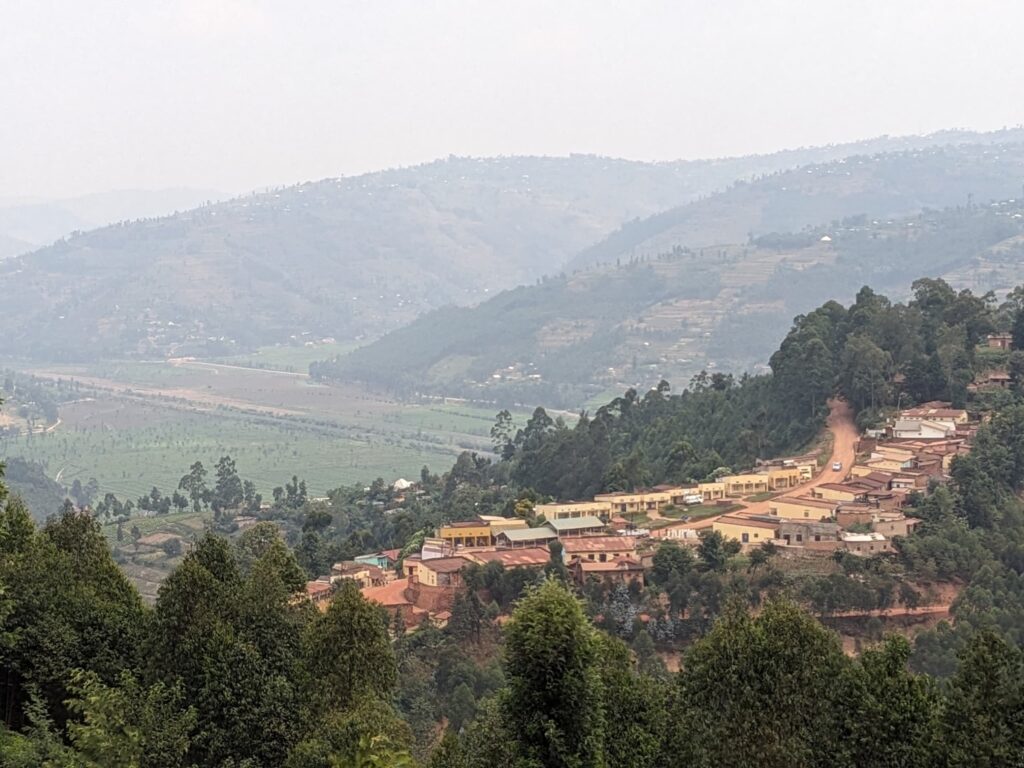
The task force lacked health insurance for members injured in the line of duty, identifiable uniforms, and sufficient protective gear for working at night or in the rain, leaving members vulnerable to armed smugglers, he emphasized.
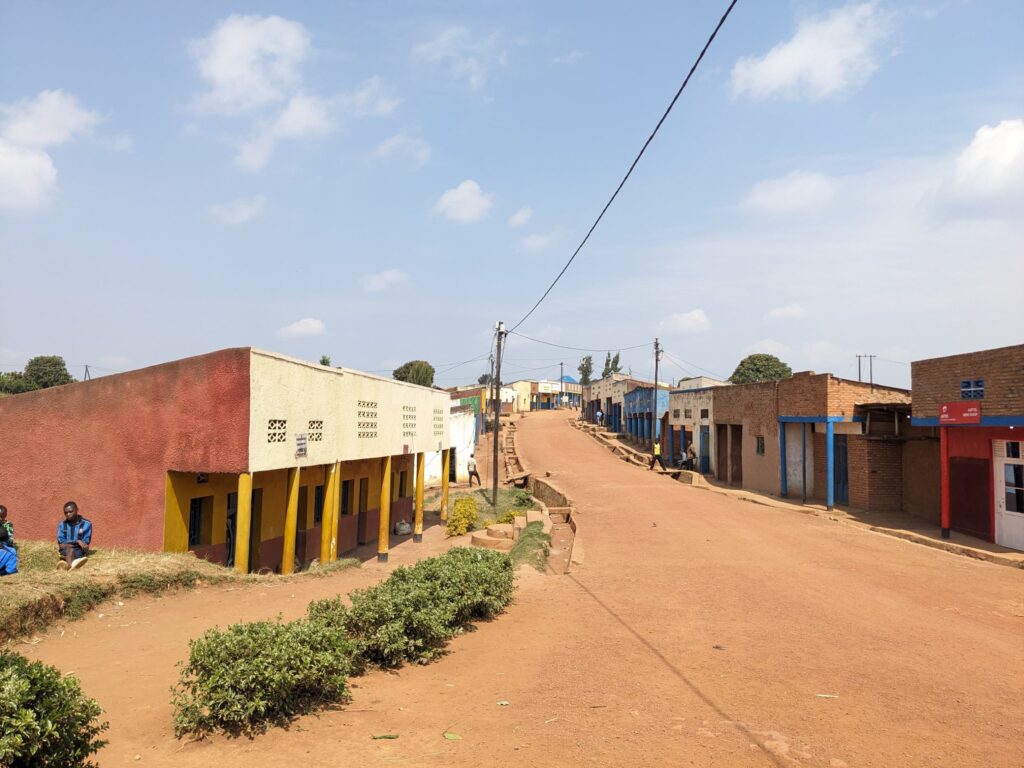
Bangirana acknowledged that some members of the task force had been caught allowing Kanyanga to pass over the border. “Those found colluding with smugglers are immediately dismissed,” he said.
High Volumes in the North
Rwanda National Police Spokesperson ACP Boniface Rutikanga said a total of 16,611 liters of Kanyanga was seized across the country during the months of April and May 2025. Figures show that the Northern Province, which borders on Uganda, recorded the highest volume with 15,117 liters confiscated.
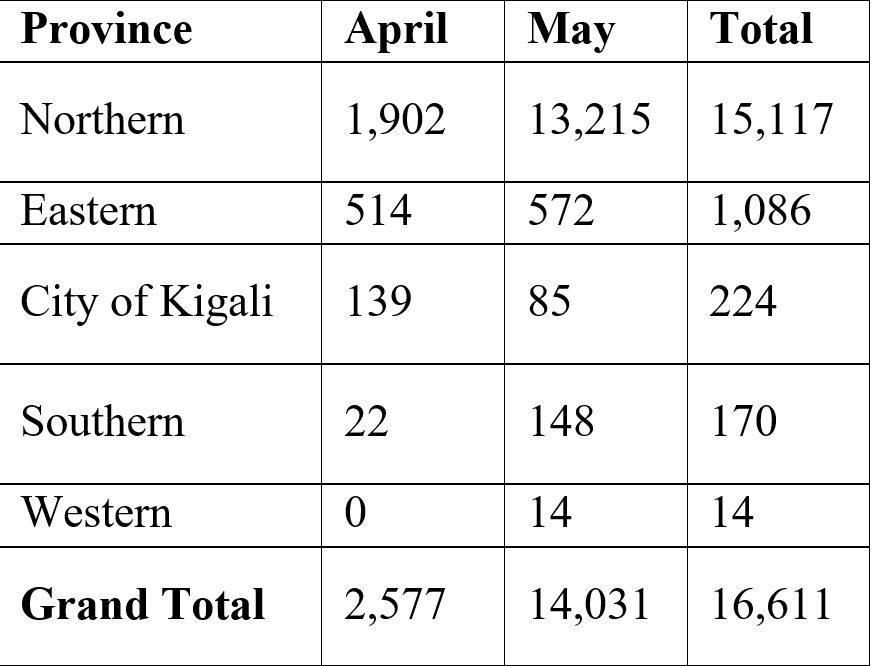
Kanyanga’s Human Cost
A study published in the East African Journal of Health and Sciences in October 2023 highlighted the dangers of drinking Kanyanga, which it said could lead to mental disorders, malnutrition, and an increase in family conflicts.
Bertilde Uwase’s sad face showed the strain of Kanyanga on her husband’s health. “Kanyanga had completely taken control of him,” she said. “When he drank, he turned into a different person. I would stay away from him until the alcohol wore off.”
Jean Nahayo, 44, who produced, sold, and consumed Kanyanga for 12 years, said he saw people become violent and families torn apart because of the drink.
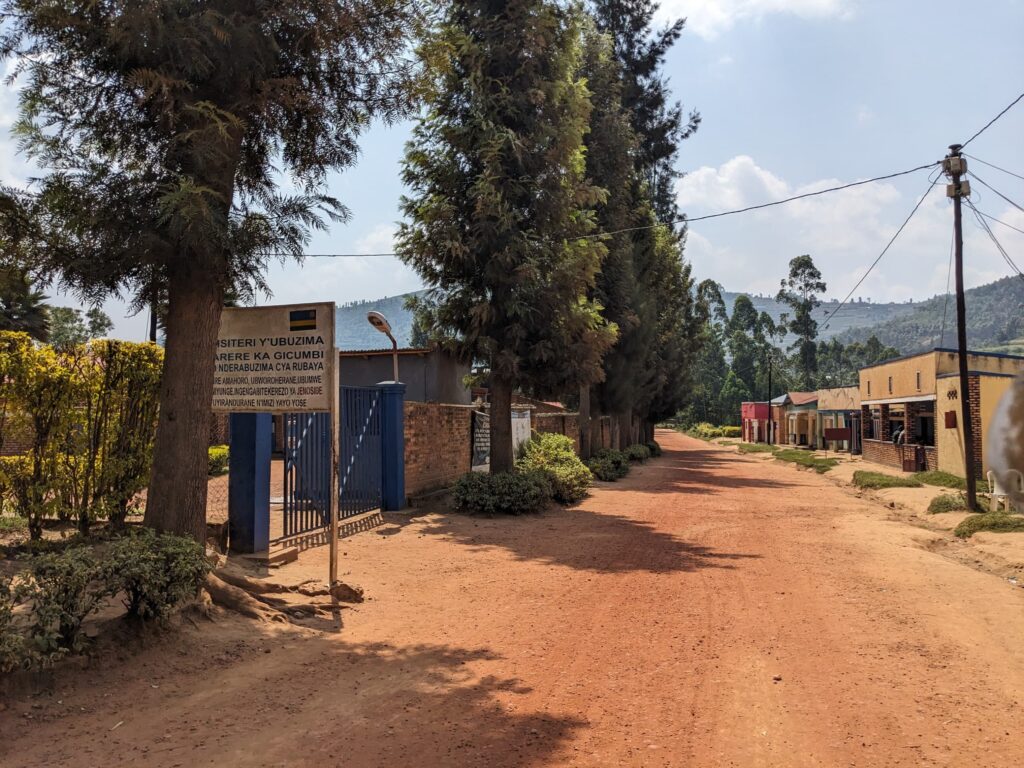
“Several of my friends were imprisoned, some got clemency, others are still serving their sentences” for infractions involving Kanyanga, he said. “One was sentenced to seven years but was pardoned before completing his term.”
He told of a close friend imprisoned for domestic violence involving Kanyanga. He spent “a year and a half in jail because he had just joined the trade and would often fight with his wife.”
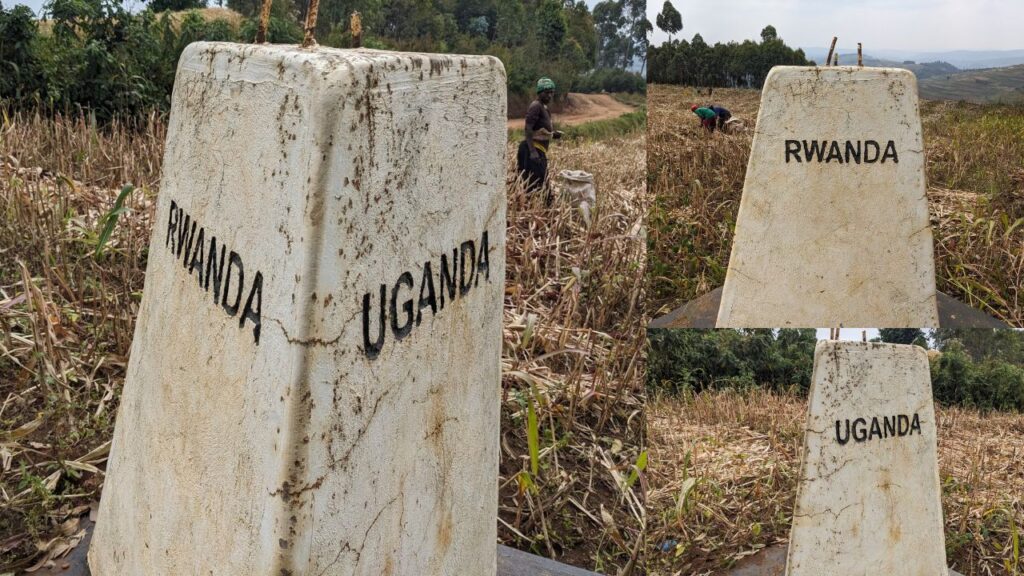
This story was supported by the Thomson Reuters Foundation as part of its global work aimed at strengthening free, fair and informed societies. Any financial assistance or support provided to the journalist has no editorial influence. The content of this article belongs solely to the author and is not endorsed by or associated with the Thomson Reuters Foundation, Thomson Reuters, Reuters, or any other affiliates.




